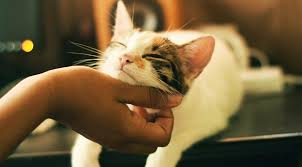Last Updated on July 15, 2024 by Dog Lover
Cat Care Essentials: Everything You Need to Know
Caring for your feline companion involves more than just cuddles and treats. Proper cat care ensures their health, happiness, and longevity.
Whether you’re a new cat owner or looking to improve your pet parenting skills, this guide covers all the essential aspects of cat care.
Understanding Your Cat’s Needs
Cats are independent yet affectionate creatures with specific needs. Understanding these basics is crucial:
- Nutritional Requirements: Cats are obligate carnivores; their diet should be rich in animal proteins and low in carbohydrates.
- Hydration: Ensure fresh water is always available. Consider wet food for added hydration.
- Grooming: Regular brushing helps prevent matting and reduces shedding.

Creating a Safe Environment
Your home should be a sanctuary for your cat. Here’s how to create a safe environment:
- Indoor vs. Outdoor Cats: Consider the pros and cons of letting your cat roam outdoors.
- Toxic Substances: Keep household chemicals, plants like lilies, and human foods like chocolate out of reach.
Healthcare Basics
Regular veterinary care is essential for your cat’s well-being. Key healthcare considerations include:
- Vaccinations and Preventative Care: Follow your vet’s schedule for vaccinations and preventive treatments.
- Parasite Control: Keep fleas, ticks, and worms at bay with regular treatments.
Behavioral Understanding
Understanding cat behavior enhances your relationship. Key points to consider:
- Communication Signs: Learn to interpret your cat’s body language and vocalizations.
- Enrichment and Play: Provide toys and scratching posts to satisfy their natural instincts.

Special Considerations for Different Life Stages
Cat care needs vary with age. Tailor your care based on life stage:
- Kittens: Provide a warm, safe space with kitten-specific food and frequent playtime.
- Senior Cats: Adjust diet and activity levels to accommodate aging joints and potential health issues.
Conclusion
Caring for your cat involves commitment and understanding.
By meeting their physical, emotional, and health needs, you ensure a happy and fulfilling life for your feline friend.
FAQs About Cat Care
How often should I groom my cat?
Regular grooming sessions are recommended, ideally daily for long-haired cats and weekly for short-haired breeds.
What are signs that my cat needs to see a vet urgently?
Signs include sudden changes in behavior, loss of appetite, difficulty breathing, and visible injuries.
Can I feed my cat dog food in a pinch?
No, cats have specific nutritional needs that dog food doesn’t meet. Stick to cat-specific food.
How can I keep my indoor cat active?
Provide interactive toys, climbing structures, and scheduled playtime to keep them mentally and physically engaged.
Are there any human foods that are safe for cats?
Certain human foods like plain cooked chicken or fish can be given as treats, but avoid seasonings or additives.
What’s the best way to introduce a new cat to my home?
Introduce them gradually, starting with a separate space and slowly integrating them into your home environment.
How can I prevent my cat from scratching furniture?
Provide scratching posts and pads, and discourage scratching on furniture by using deterrent sprays.
Reference Links
- American Association of Feline Practitioners (AAFP) – Cat Care Guidelines
- Cornell Feline Health Center – Cat Health Topics
- ASPCA – Pet Care Tips for Cats
- International Cat Care – Cat Care Advice
- WebMD Pets – Understanding Your Cat’s Behavior























